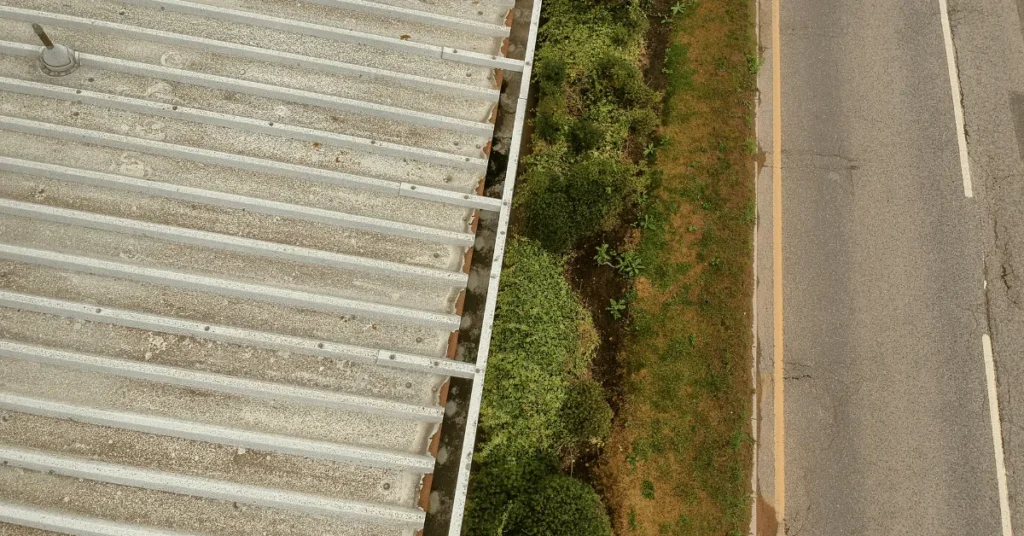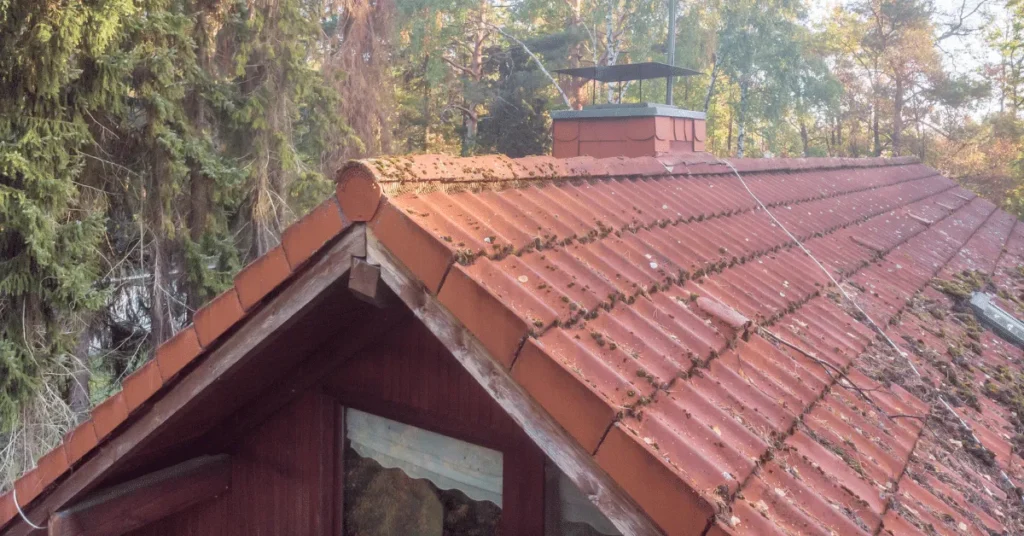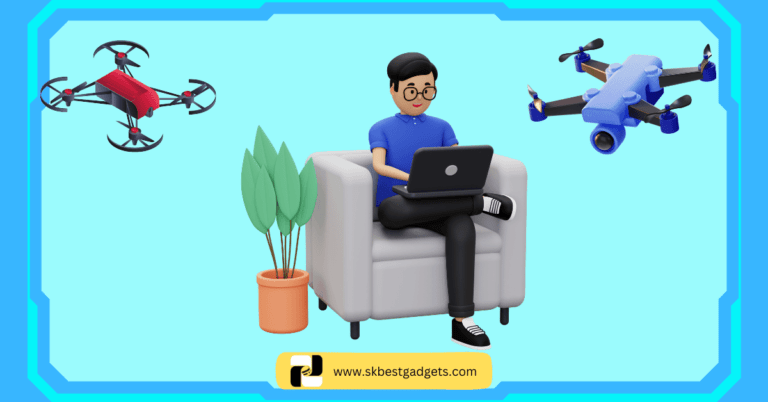How to Start a Drone Roof Inspection Business? (2024 Drone Business)

Are you a tech enthusiast with a passion for heights and a keen eye for detail? Starting a drone roof inspection business might just be the perfect venture for you.
With the rapid advancements in technology, drones have revolutionized various industries, and the roofing industry is no exception.
Gone are the days of manually climbing ladders and risking safety to inspect rooftops. Drones provide a safer, more efficient, and cost-effective alternative.
But you might be thinking, How to Start a Drone Roof Inspection Business?
In this article, we will guide you through the essential steps to kickstart your very own drone roof inspection business. From acquiring the necessary skills and certifications to marketing your services, we’ve got you covered.
So, strap in, put on your entrepreneur hat, and let’s take flight into the exciting world of drone roof inspections!
Table of contents
- What kind of degrees/skills/trainings you need to start your drone roof inspection business?
- What are the steps to become a commercial drone pilot and get the commercial drone pilot license?
- Do you need the drone insurance if you want to start a drone roof inspection business?
- What kind of equipmets do I need to start a drone roof inspection business?
- What kind of jobs will I do as a drone roof inspection business owner?
- How do I set the costs for my drone roof inspection job?
- What should I learn to boost my drone roof inspection business and how to market it?
- What are some successful drone roof inspection business?
- Is a drone roof inspection business profitable?
- How much does a roof inspection drone cost?
- Final Thoughts – How to Start a Drone Roof Inspection Business?
- FAQs
What kind of degrees/skills/trainings you need to start your drone roof inspection business?
If you’re looking for a high-flying career that combines technology, creativity and problem-solving, you might want to consider starting your own drone roof inspection business.
But before you take off, you’ll need to acquire some essential degrees, skills and trainings to ensure your success.
First, you’ll need a degree or certification in drone piloting, which will teach you how to operate, maintain and repair drones, as well as the rules and regulations of flying them safely and legally.
You can find online courses or programs at local colleges or universities that offer this qualification.
Second, you’ll need a degree or certification in roof inspection, which will teach you how to identify and assess roof damage, defects and hazards, as well as how to write detailed and accurate reports for your clients.
You can also find online courses or programs at local colleges or universities that offer this qualification.

Third, you’ll need some skills and trainings in marketing, sales and customer service, which will help you attract, retain and satisfy your customers, as well as grow your business and reputation. You can learn these skills through online courses, books, podcasts or mentors.
With these degrees, skills and trainings, you’ll be ready to launch your drone roof inspection business and soar above the competition. Just remember to always keep learning and improving your craft, and you’ll be flying high in no time.
Read More: How Much Do Aerial Photographers Make?
What are the steps to become a commercial drone pilot and get the commercial drone pilot license?
If you have a passion for flying drones and want to make some money out of it, you might be interested in becoming a commercial drone pilot.
But before you can start charging for your services, you need to get a commercial drone pilot license from the Federal Aviation Administration (FAA). Here are the steps to follow:
Steps to become a commercial drone pilot
Congratulations! You are now a licensed commercial drone pilot and can start offering your services to clients. Just remember to follow the rules and regulations of the FAA and fly safely and responsibly.
Read More: The Top 9 Commercial Uses of Drones in 2023
Do you need the drone insurance if you want to start a drone roof inspection business?
That’s like asking if you need a parachute if you want to jump out of a plane. Sure, you might get lucky and land on a soft spot, but do you really want to take that risk?
Drone insurance is not only a smart move, but also a legal requirement in many areas. You don’t want to be liable for any damage or injury caused by your flying camera, do you?
Plus, drone insurance can cover theft, loss, or malfunction of your equipment, which can save you a lot of money and hassle in the long run.
So, unless you have a death wish or a trust fund, you need the drone insurance if you want to start a drone roof inspection business.

What kind of equipmets do I need to start a drone roof inspection business?
If you’re looking for a new way to make money with your drone, you might want to consider starting a roof inspection business.
Roof inspections are in high demand, especially after storms, hail, or other natural disasters that can damage roofs. Roof inspections can also help homeowners save money on insurance claims, repairs, and maintenance.
But what kind of equipment do you need to start a drone roof inspection business? Here are some essential items you’ll need:
Equipments that you need to start your business:
Read More: How to Make Money With a Drone? (17 Best Ways)
What kind of jobs will I do as a drone roof inspection business owner?
As the owner of a drone roof inspection business, you will have a range of responsibilities and tasks to manage. This article will provide an overview of the various jobs you will do as a drone roof inspection business owner.
1. Client Acquisition and Communication
One of the primary jobs as a business owner is to acquire new clients. This involves marketing your services, networking with potential customers, and establishing relationships with real estate agents, property managers, and insurance companies.
Effective communication skills are essential to understand client requirements and address any concerns they may have.
2. Drone Operation and Maintenance
As a drone roof inspection business owner, you will be responsible for operating and maintaining the drones used for roof inspections.
This includes ensuring the drones are in good working condition, conducting regular maintenance checks, and staying up to date with any software or hardware upgrades.
3. Roof Inspections and Data Analysis
Your primary job will be conducting roof inspections using drones. This involves piloting the drone to capture high-resolution images and videos of roofs, identifying any damage or potential issues, and analyzing the collected data. You will need to have a keen eye for detail and be able to accurately assess the condition of roofs.

4. Report Generation and Documentation
After conducting roof inspections, you will need to generate detailed reports for your clients. This includes documenting the findings, providing recommendations for repairs or maintenance, and presenting the information in a clear and professional manner. Attention to detail and strong report writing skills are crucial for this job.
5. Business Administration
Running a drone roof inspection business involves various administrative tasks. This includes managing finances, scheduling appointments, maintaining records, and ensuring compliance with legal and regulatory requirements.
Good organizational and time management skills are essential to handle these responsibilities effectively.
Read More: How Much Should I Charge for Drone Mapping in 2024?
How do I set the costs for my drone roof inspection job?
Setting the costs for your drone roof inspection job can be tricky. You want to make a profit, but you also want to be competitive and fair. Here are some factors to consider when pricing your services:
A good way to estimate your costs is to use a cost-plus pricing method. This means you add up all your expenses (such as equipment, maintenance, insurance, travel, etc.) and then add a markup percentage that reflects your desired profit margin.
For example, if your total costs are $200 and you want a 25% profit margin, you would charge $250 for the job.
Of course, this is just a rough guide. You may need to adjust your prices depending on the specific circumstances of each job and the feedback from your clients. The key is to be transparent, flexible and professional in your pricing strategy.

What should I learn to boost my drone roof inspection business and how to market it?
If you want to take your drone roof inspection business to the next level, you need to learn two things: how to deliver high-quality reports and how to market your services effectively. Here are some tips on how to do both:
By learning these skills, you can boost your drone roof inspection business and attract more customers.

What are some successful drone roof inspection business?
In recent years, the use of drones for roof inspections has gained significant popularity due to their efficiency and cost-effectiveness.
Several businesses have emerged as leaders in this field, providing exceptional drone roof inspection services. Let’s take a closer look at some of these successful companies:
1. AerialSphere
AerialSphere specializes in high-resolution aerial imagery and mapping solutions. Their advanced drone technology allows for detailed roof inspections, providing accurate data for analysis and assessment.
With their expertise in 3D modeling and mapping, AerialSphere delivers comprehensive reports that help clients make informed decisions.
2. Zeitview
Zeitview is a leading provider of drone services, including roof inspections. They have a vast network of licensed and experienced drone pilots who conduct thorough inspections and capture high-quality imagery.
Zeitview offers quick turnaround times and comprehensive reports, making them a preferred choice for many businesses in need of roof inspections.
3. EagleView
EagleView is a well-established company specializing in aerial imagery and data analytics. They utilize advanced drone technology to capture detailed roof measurements and create accurate 3D models.
EagleView’s comprehensive reports provide valuable insights for insurance companies, contractors, and real estate professionals.
4. Measure
Measure is a company that offers end-to-end drone solutions, including roof inspections. They provide customizable inspection services tailored to the specific needs of their clients.
Measure’s experienced pilots and advanced imaging technology ensure accurate and reliable data collection, enabling efficient roof assessments.
These successful drone roof inspection businesses have demonstrated their expertise in utilizing drone technology to provide efficient and reliable roof inspections.
Whether it’s for insurance claims, property assessments, or construction projects, these companies offer valuable services that contribute to the success of various industries.

Is a drone roof inspection business profitable?
If you’re looking for a way to make some money from the sky, you might be wondering if a drone roof inspection business is profitable.
Well, the answer is not as simple as yes or no. There are many factors that affect the profitability of this type of business, such as the demand, the competition, the costs, and the regulations. Let’s take a look at each one.
Demand: There is a growing demand for drone roof inspections, especially in areas where natural disasters, such as hurricanes, tornadoes, or hailstorms, are common. Roof damage can be hard to spot from the ground, and hiring a professional roofer can be expensive and time-consuming.
Drones can provide a quick and accurate assessment of the roof condition, and help homeowners and insurance companies save money and hassle.
Competition: The drone industry is booming, and so is the competition. There are many drone service providers out there, offering various services, such as aerial photography, videography, mapping, surveying, and inspection.
To stand out from the crowd, you need to have a unique selling proposition, such as a niche market, a specialized skill, or a competitive price.

Costs: Running a drone roof inspection business is not cheap. You need to invest in a high-quality drone, a camera, a gimbal, a controller, a monitor, batteries, chargers, and other accessories.
You also need to pay for insurance, licenses, permits, marketing, and maintenance. Depending on your location and the scale of your business, these costs can add up quickly.
Rules that you need to follow
Regulations: Flying a drone is not as easy as it seems. You need to follow the rules and regulations set by the Federal Aviation Administration (FAA) and other local authorities.
You need to register your drone, pass an exam, obtain a remote pilot certificate, fly within visual line of sight, avoid flying near airports or other restricted areas, respect people’s privacy and property rights, and more. Failing to comply with these regulations can result in fines or legal actions.
So, is a drone roof inspection business profitable? It depends on how you manage these factors. If you can find a high demand for your service, differentiate yourself from the competition, minimize your costs, and follow the regulations, you might have a chance to make some profit from the sky.

But don’t expect it to be easy or quick. It takes hard work, dedication, and passion to succeed in this business.
How much does a roof inspection drone cost?
If you’re looking for a roof inspection drone, you might be wondering how much it will cost you. Well, the answer is not so simple.
There are many factors that affect the price of a roof inspection drone, such as the size, features, quality, and brand of the drone.
However, to give you a rough idea, you can expect to pay anywhere from $500 to $5000 for a roof inspection drone, depending on your needs and preferences.
Of course, you can always find cheaper or more expensive options, but you get what you pay for. A roof inspection drone is a smart investment that can save you time, money, and hassle in the long run.
It can help you detect and prevent roof damage, leaks, mold, and other issues that can compromise your home’s safety and value.
Plus, it can be fun to fly a drone around your roof and see things from a different perspective. So, if you’re ready to take your roof inspection to the next level, start browsing for a roof inspection drone today. You won’t regret it!

Final Thoughts – How to Start a Drone Roof Inspection Business?
Starting a drone roof inspection business can be a lucrative venture, given the increasing demand for efficient and accurate roof inspections.
By investing in the right equipment, obtaining the necessary certifications, and actively marketing your services, you can establish a successful business in this growing industry.
Embrace the power of drones and offer your clients a modern and cost-effective solution for their roof inspection needs.
FAQs
Yes, it’s crucial to obtain the necessary certifications and licenses before starting a drone roof inspection business.
In most countries, you’ll need to obtain a remote pilot license or certification from the aviation authority. Additionally, it’s recommended to get liability insurance to protect your business and clients.
Networking and building relationships with local roofing contractors, real estate agents, and property management companies can be an excellent way to find clients.
It’s also essential to have a professional website and online presence to showcase your services and attract potential customers. Word-of-mouth recommendations and positive reviews can also help generate more business.
Drones offer numerous benefits for roof inspections. They can access hard-to-reach areas, reducing the need for ladders or scaffolding, which improves safety and saves time.
Drones can capture high-resolution images or videos, allowing for detailed analysis of roof conditions. Additionally, using drones can help identify potential issues early on, preventing costly repairs down the line.







